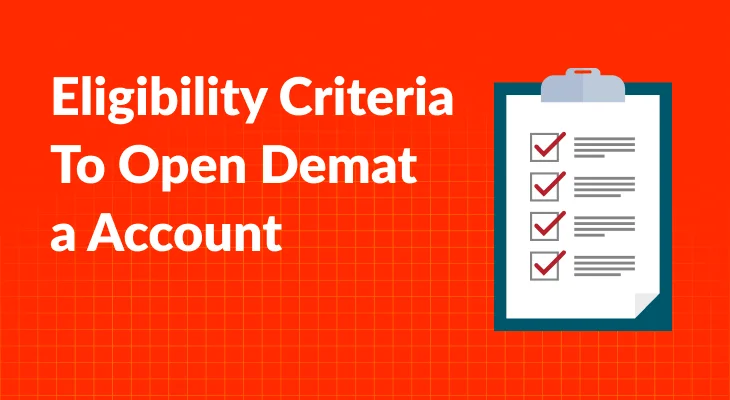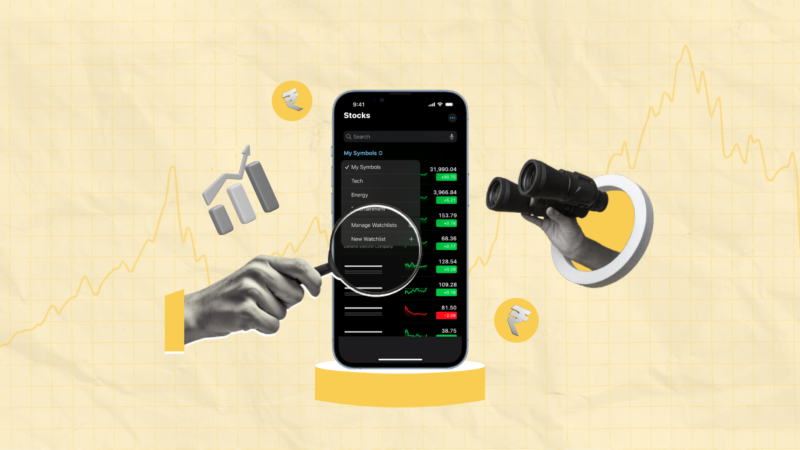Eligibility criteria to open a Demat account

With inflation near all-time highs, planning and investing for the future is paramount. But simply investing will not be sufficient. You must invest in inflation-beating avenues like the stock market. However, to invest in the Indian stock market, you must open a Demat account. A Demat account stores financial assets like shares, debentures, exchange traded funds and mutual funds etc. in electronic form. While opening a Demat account is easy with the advent of technology, you must be aware of the eligibility criteria to open a Demat account to ensure a hassle-free experience.
Who is eligible to open a Demat account?
The following entities are eligible to open a Demat account in India.
- Resident individuals
- Non Resident individuals
- Corporate entities
- Partnership firms
- Banks
- Registered or unregistered trust
- Mutual funds
- Registered or unregistered society
- People of all ages (Demat account for minors is to be operated by their parents or legal guardians)
Documents required to open a Demat account
- For individuals, a PAN card is mandatory while opening a Demat account. Additionally, standard documents like Aadhaar card, address proof (voter id, passport, ration card etc.), address proof (income tax return, salary slip), signature and photograph are required.
- In addition to the standard documents, corporate entities, partnership firms and trusts etc. must provide partnership deeds, balance sheets, board resolutions etc.
Who can hold a Demat account?
There is no minimum age to open a Demat account. Even minors (below 18 years) can open a Demat account. However, the operation of the Demat account is to be undertaken by their parents or legal guardians.
Additionally, multiple account holders can open a Demat account in either sole or joint capacity. Solely-held Demat accounts have only one account holder who can operate the account. A nominee is compulsory for such Demat accounts. In India, joint Demat accounts are allowed but limited to three people, one of whom must be a primary account holder and the other two are joint holders. It is important to note here that a jointly held Demat account can be opened only by people who are 18 years of age or above.
Demat accounts can be opened by Non-Resident Indians as well. NRIs must, however, open separate Demat accounts for repatriable and non-repatriable transactions.
What are the benefits of a Demat account?
Opening a Demat account presents a wide array of benefits for the account holder. Here are the major benefits of opening a Demat account:
Elimination Of Physical Share Certificates:
By opening a Demat account, you are spared the necessity to retain physical share certificates. The digital certificates for the securities purchased by you are safely held in your Demat account, serving as proof of ownership.
Safe Portal For Investing In The Stock Market:
A Demat account is a mandatory requirement for trading in the stock market. It serves as a safe portal to engage in buy and sell transactions in the stock market. You can check and handle all your stock market transactions through this account.
Helps Save Time:
The process of trading in the securities market becomes extremely hassle-free and time-efficient with a Demat and trading account. Not only do you save on the time required to place buy and sell orders, but you also get the seamless execution and delivery of said orders.
A Demat account has countless other benefits. But these get watered down in lieu of the high brokerage charged by your broker. Therefore, to maximise the benefits of your Demat account, you must opt for a zero-brokerage trading platform like m.Stock. With m.Stock, you can trade for free across products (intraday, F&O (Futures & Options), currency etc.) for life. So, multiply your trading potential whilst paying zero brokerage with m.Stock.




